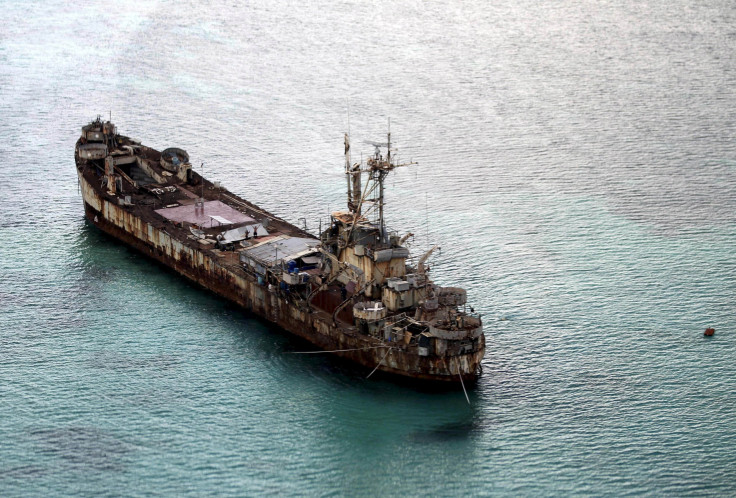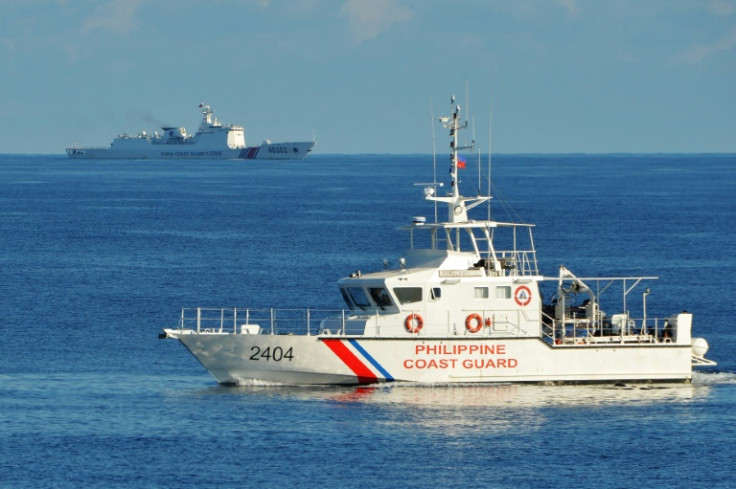US Condemns China's 'Provocative And Unsafe' Behavior After Lazer Temporarily Blinded Philippine Troops

KEY POINTS
- State Department spokesperson Ned Price accused China of threatening stability in the region
- Price reminded that China's claims in the South China Sea were nullified by the 2016 Hague ruling
- The Philippines filed a diplomatic protest against China over the laser-pointing incident
The U.S. condemned China after reportedly using "military-grade" lasers against a Philippine naval ship en route to resupply its troops at Second Thomas Shoal in the contested South China Sea last week.
Ned Price, the State Department spokesperson, accused China of "provocative and unsafe" behavior against the Philippines, adding that it threatened the stability and freedom of navigation in the region.
"The United States stands with our Philippine allies in the face of the People's Republic of China (PRC) Coast Guard's reported use of laser devices against the crew of a Philippine Coast Guard ship on February 6 in the South China Sea," Price said, according to the State Department website.
"[T]he PRC's dangerous operational behavior directly threatens regional peace and stability, infringes upon freedom of navigation in the South China Sea as guaranteed under international law, and undermines the rules-based international order," he added.
The U.S. reminded China of The Hague's 2016 ruling in favor of one of its closest allies in Asia and that China has "no lawful maritime claims" to Second Thomas Shoal, widely known as Ayungin Shoal in the Philippines.
Price also reiterated the U.S.'s commitment to defending the Philippine armed forces from an attack in the South China Sea through the 1951 Mutual Defense Treaty.
CNN reported, citing a statement from the Philippine Coast Guard, that a Chinese Coast Guard ship pointed laser beams at BRP Malapascua, which caused temporary blindness to some of its naval crews.
The Chinese naval ship also reportedly "made dangerous maneuvers" by going near the Philippine naval ship by at least 137 meters.
The Philippines said the incident is a "blatant disregard" of their sovereign rights in the part of the South China Sea, which they called the West Philippine Sea.
"The deliberate blocking of the Philippine government ships to deliver food and supplies to our military personnel on board the BRP Sierra Madre is a blatant disregard for, and a clear violation of, Philippine sovereign rights in this part of the West Philippine Sea," according to the Philippine Coast Guard.
According to Philippine Foreign Affairs Spokesperson Teresita Daza, they have already filed a diplomatic protest against China, urging them to stop "aggressive activities" in the disputed region.
Daza said the incident undermined the agreement between Philippine President Ferdinand Marcos Jr. and Chinese President Xi Jinping that tensions in the maritime waters should be managed through diplomacy.
But China insisted that their coast guard acted in accordance with the law.
"We urge the Philippines to avoid such actions, and the actions of China's staff are professional and restrained," Chinese Foreign Ministry Spokesperson Wang Wenbin said, Al Jazeera reported.
China also accused the Philippine vessel of trespassing "into the waters of Renai Reef without the permission of the Chinese side."
The center of the latest maritime incident is the BRP Sierra Madre, which was intentionally grounded by the Philippines in 1999 in Second Thomas Shoal to enforce their claim to the area.
The World War II-era ship is currently manned by a handful of Filipino soldiers, heavily dependent on resupply missions for their food and hygiene.
The incident came more than a week after Defense Sec. Lloyd Austin III visited the Philippines after the U.S. secured access to four more military bases in the country under the Enhanced Defense Cooperation Agreement (EDCA).
The U.S. hopes that the expanded access to the Philippine military facilities would further cement its presence in the region and keep Chinese military activities in check.

© Copyright IBTimes 2024. All rights reserved.






















